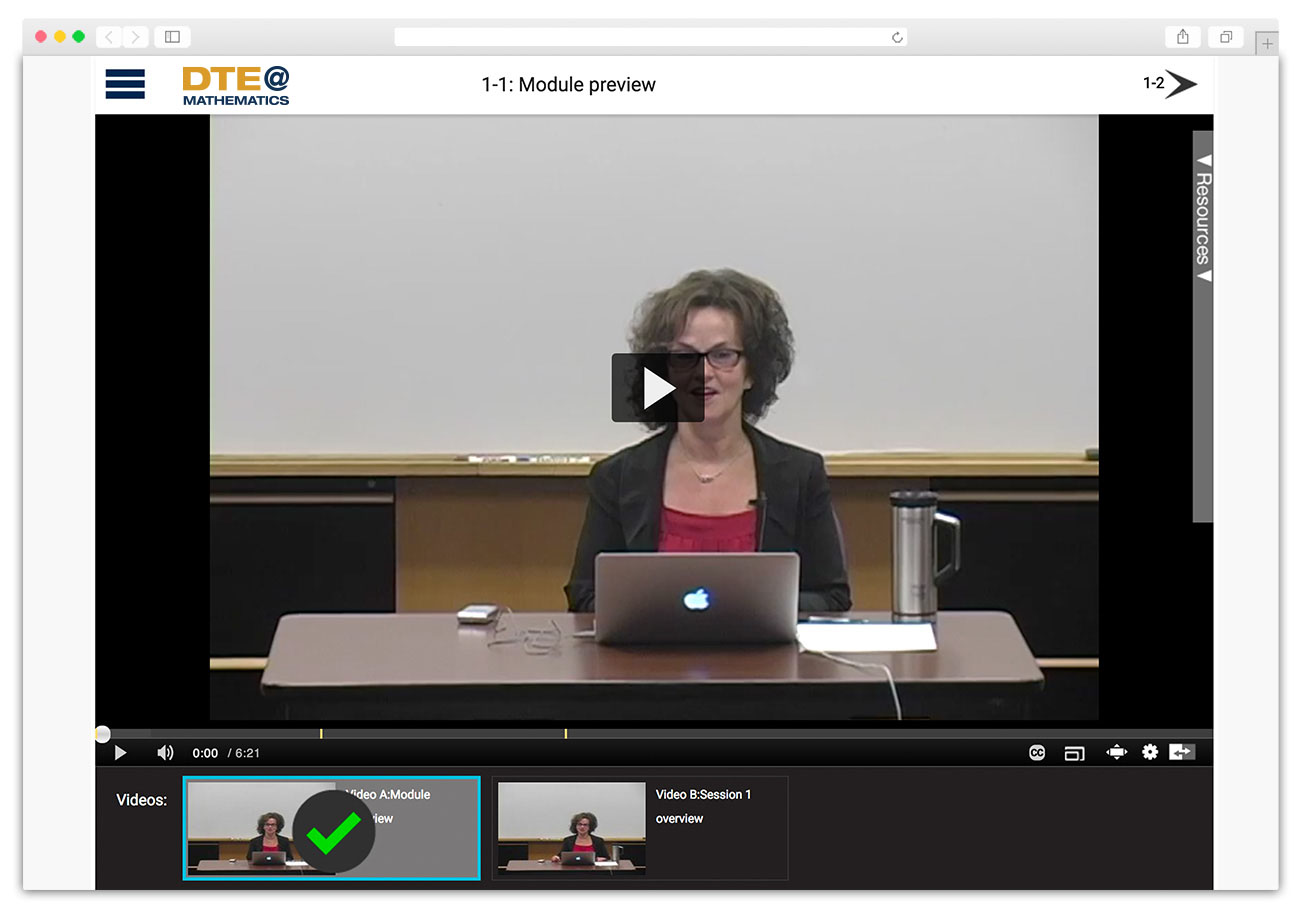Fractions - Session 1: Studying mathematics teaching with a focus on fractions
Part 1: Module preview
Overview
This part provides an overview of the module.
Each Dev-TE@M module focuses on four core elements of the work of elementary teaching:
- Mathematics geared to the demands of teaching
- Student thinking about mathematics
- High-leverage mathematics teaching practices for diverse classrooms and contexts
- Approaches for learning from and systematically improving teaching
Work on these elements is integrated across the ten sessions of a module, providing opportunities to practice, build on, and extend ideas over time. In addition, simultaneously working on the four core elements is important because the work of elementary mathematics teaching requires integrated attention to these elements in practice.
The content of this module—Representing and Comparing Fractions in Elementary Mathematics Teaching—focuses on:
- Mathematics: fraction representation, definition, comparison and equivalence
- Student thinking: students’ ideas about and approaches to working with fractions
- Teaching practice: practices of using representations in classroom teaching (e.g., analyzing, connecting, narrating)
- Learning from practice: processes for documenting and analyzing images of “public recording space” to improve practice
Fractions are a central topic in elementary mathematics. In both the NCTM Standards and the Common Core Standards, students in grades 3 through 5 are expected to develop understanding of and skill with fractions as numbers, fraction equivalence, comparing and ordering fractions, and operations with fractions. In addition, students are expected to use and represent fractions as they engage in mathematical reasoning, model and solve problems, and communicate precisely. This module focuses on the developing the knowledge and skills teachers need to help their students develop an understanding of some of the key ideas underlying these standards.
